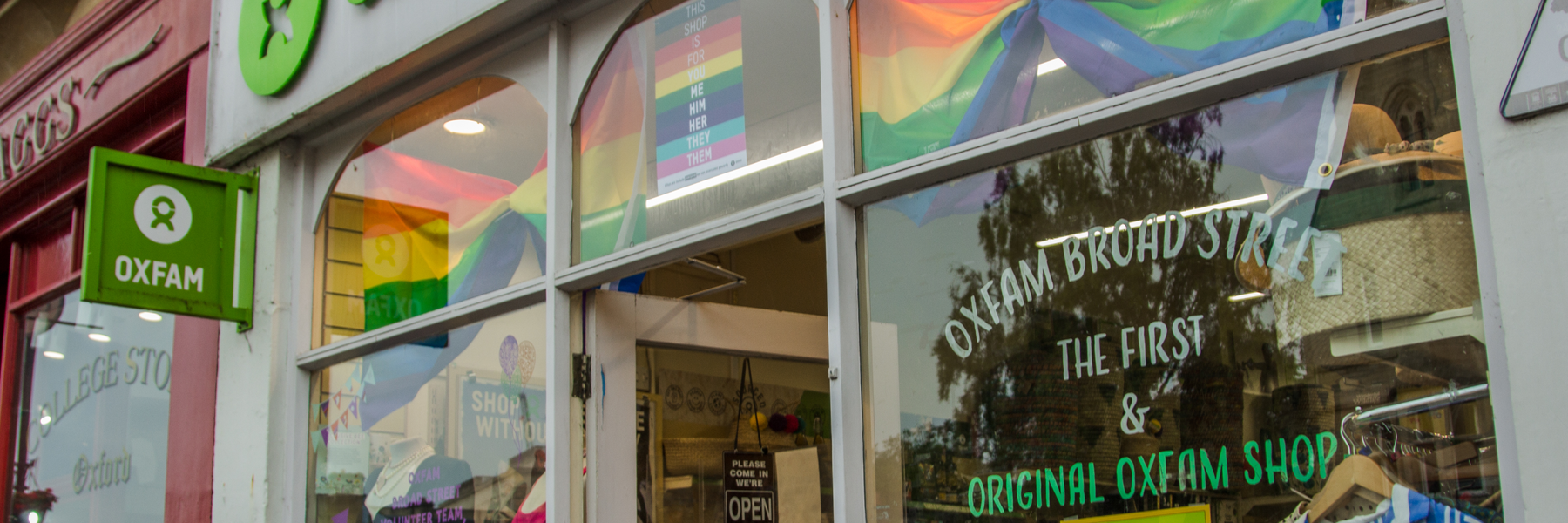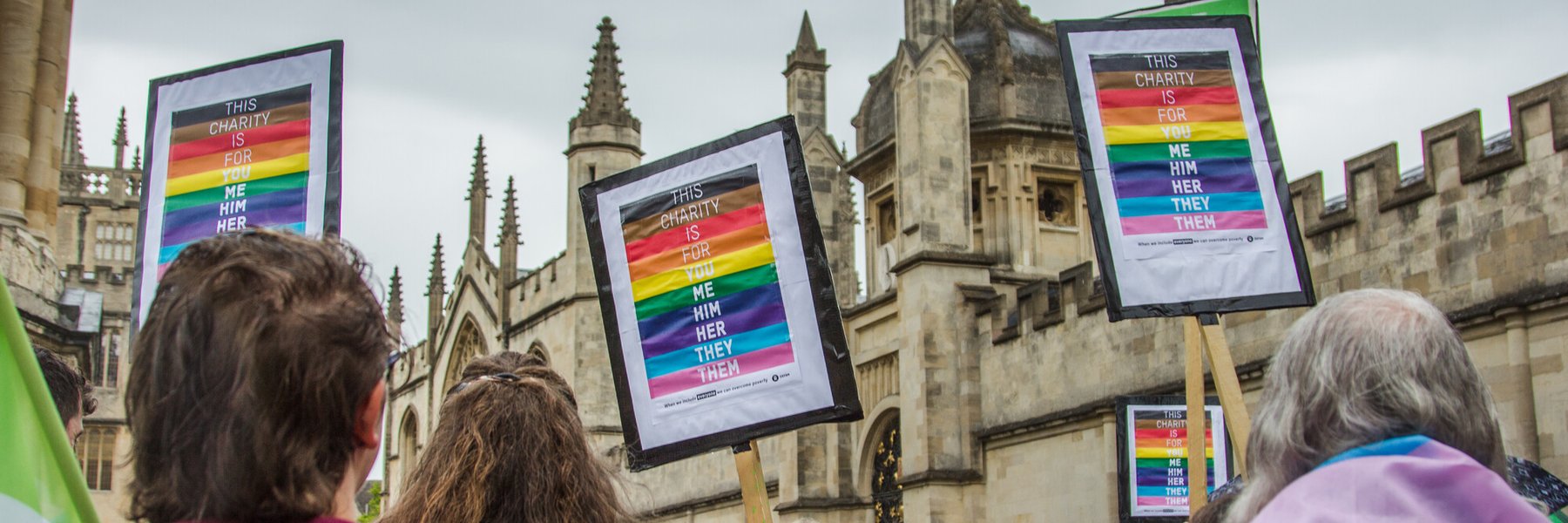
Zara Canfield
LGBTQIA+ rights are human rights
So many of us can take our rights for granted, enjoying freedoms and protections without a second thought.
But for the lesbian, gay, bisexual, transgender, queer, intersex, and asexual/aromantic (LGBTQIA+) community, daily life can often be marked by violence, discrimination and prejudice.
We all deserve the right to live in safety, dignity, and peace. A fair and equal world includes all of us.
Benjamin, a Queerpreneurs Expo organiser and participant, in Suva, Fiji. Image: Alipate Laveti/Oxfam
I think that's what the Queerpreneurs Expo does. It acknowledges you for the hard work that you've contributed or you are contributing, or as emerging entrepreneurs, what you're going to bring to the table. But it also provides you with that support system where you know it's okay to be queer, it's okay to be an entrepreneur. We're here for you. Let's work together as a community.”
Benjamin, a Queerpreneurs Expo organiser and participant, in Suva, Fiji.
LGBTQIA+ rights are in crisis
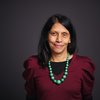
“The rights of everyone must be upheld if society is to prosper and move forward. This is not then a moment for LGBTQIA+ communities and their many allies to give way but, rather, to hold their ground with respect and dignity. The freedoms afforded to any community or group of people in society should be cherished and protected.”
Dr Halima Begum (Oxfam GB CEO, 2024-2025)
Being LGBTQIA+ in the UK
LGBTQIA+ adults were homeless in the last year
LGBTQIA+ people experienced hate crimes in 2023/24
LGBTQIA+ workers skipped meals or went without food in 2024
Oxfam's work with LGBTQIA+ communities
Poasa (he/him), also known as Porsha, on the PRIDE farm that he oversees in Nakavu village, Western Fiji. Credit: Alipate Laveti/Oxfam
The people who used to be against us, their perceptions of us have now changed. It’s completely changed their views. Now, when we walk by their houses, they call out to us to come and have something to eat. That’s how things have changed.”
Poasa, who oversees the PRIDE farm in Nakavu village, Western Fiji.
Gender justice and LGBTQIA+ rights
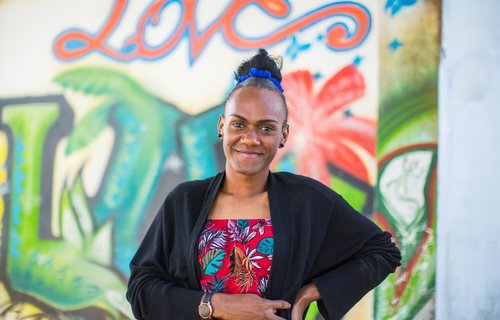
Vanuatu Pride Ivanka
Ivanka is a member of Vanuatu Pride (VPride), and says that VPride has given her the confidence to be herself and go out in the community despite the discrimination often faced.
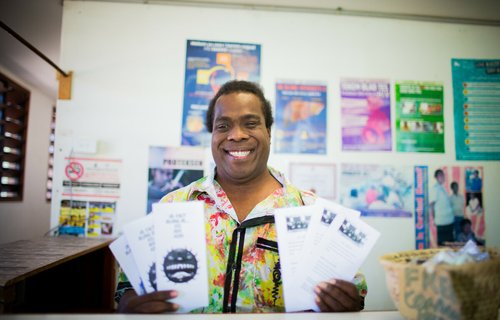
Vanuatu Pride Peter
Peter is one of the original members of Vanuatu Pride (VPride) and works on sexual health outreach and advocacy to communities.
More about gender justice
What is gender justice?
Oxfam understands gender justice as equality and fairness between girls, women, boys, men and gender-diverse people in all areas of life. This means everyone has the power to make decisions which affect their lives, and society as a whole.
Our understanding of gender justice includes LGBTQIA+ people.
We understand that patriarchal systems – where cis men hold the majority of the power – harm everyone.
How are trans rights essential to gender justice?
Oxfam is committed to gender justice. Our gender justice is trans inclusive. We're against all oppression and discrimination due to someone’s identity.
We recognise that ‘women’ includes both cis and trans women. Around the world, womanhood is experienced in many different ways. No one’s womanhood is less valid than anyone else’s.
Some things that affect cis women may also affect trans women, trans men, and non-binary people too.
For example, LGBTQIA+ people disproportionately experience sexual violence. This is thought to be linked to discriminatory stereotypes that are connected to negative norms about gender and sexuality.
Our work to promote women’s rights and to tackle LGBTQIA+ discrimination give everyone an equal chance to thrive. One doesn’t counteract the other. Both support inclusivity so no-one is left behind in the fight against poverty and inequality.
What does Oxfam mean by 'trans-inclusion'?
Trans-inclusion means including trans women, trans men, and non-binary people – in all their diversity and expression. Our gender justice work, and feminism, is trans-inclusive.
We live in a system where cisgender men have more power and resources. Traditionally, gender justice looks at discrimination against cisgender women because of this unequal share of power. However, a trans-inclusive approach to gender justice also looks at how transgender people are harmed by this too.
It doesn’t just recognise that transgender people exist. It actively understands and addresses how trans people experience harm.
What is Oxfam GB doing to promote trans inclusion in the workplace?
Oxfam GB is a trans-inclusive employer. We welcome trans and non-binary staff and volunteers, valuing their lived experiences. Our workplace policies ensure that trans and non-binary people are respected and included at work.
We acknowledge that we are at the beginning of our journey towards full trans-inclusion. We've made mistakes and have much more to do.
We’re committed to removing transphobic discrimination and fostering a culture of inclusivity. Our workplaces must be safe and respectful for everyone.
Why does Oxfam take an intersectional feminist approach?
Tackling global poverty means tackling its causes. Such as discrimination against women, girls and gender-diverse people.
We’re against all oppression and discrimination. It drives inequality, increases people’s chance of living in poverty, causes harm, and prevents people from upholding their rights.
Oxfam’s feminism is intersectional. Our race overlaps with other aspects of identity – like gender, sexuality, class, disability status and more. This creates unique experiences of both oppression and privilege.
Intersectionality helps us see that millions of people live in poverty worldwide. Not because of who we are, but because inequality and discrimination exist within societal systems.
We’ll never build a radically better world unless we recognise all the ways power and oppression trap people in poverty.
Oxfam's Pride shopfront in Broad Street, Oxford. Image: Zara Canfield/ Oxfam
